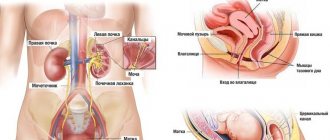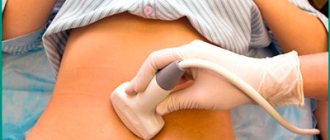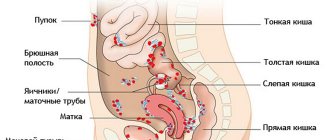03/30/2018 Category: Diseases and complicationsAuthor: Larisa Morozova
Pregnancy is a wonderful period in a woman’s life, which gives her a lot of unusual sensations. This is an incredible awareness of the birth of a new life, the first tremors of the baby. However, the expectant mother also has to endure the inconveniences that accompany her situation. One of them is frequent urination. Some people experience this only in the early stages, while others are frequent visitors to the toilet throughout the entire period of pregnancy.
- In the first trimester
Video: signs of early pregnancy
- How to alleviate the condition of the expectant mother
Photo gallery: recommendations for pregnant women
- Cystitis
Treatment methods
- Treatment
general characteristics
A considerable number of expectant mothers report very frequent urination during early pregnancy, which begins to bother them 3 to 5 weeks after conception. This sign of the onset of gestation is especially pronounced at night, that is, when taking a horizontal position.
Why does this happen, what are the main factors that can provoke such an unpleasant disruption of the body? In the absence of pathologies, probable causes of frequent urination include:
- In the early stages, that is, 2 to 3 weeks after conception, frequent urination in pregnant women is usually the result of hormonal changes and increased production of progesterone. An increase in the amount of this hormone in the body leads to a decrease in the tone and elasticity of muscle fibers, including those that support the tone of the bladder.
- If in one case the systematically occurring urge to empty the bladder is a manifestation of the norm, then frequent urination during pregnancy in the second trimester is considered to be a particularly alarming sign that indicates the likely development of pathologies or diseases. This is due to the fact that during this period the hormonal background remains relatively stable, and the growing uterus is located above the limits of the small pelvis, accordingly, there are virtually no physiological reasons for frequent urination.
As for the later stages of gestation, in this case, frequent urination, as well as incontinence, can be considered among the natural phenomena caused by the increased pressure of the enlarging uterus on the tissue, as well as the pelvic organs. In a number of certain cases, pathological manifestations of this kind persist for several weeks or months after the baby is born.
Important! It should be noted that frequent urination in women, which occurs in the absence of pathologies, is more likely to be a sign of pregnancy in the early stages of gestation. If such a symptom appears, you should consult a doctor to rule out diseases and confirm the onset of gestation.
Causes
In addition to the above, we can also identify a number of main factors that can provoke frequent urination during early pregnancy:
- An increase in the total volume of hemolymph circulating in the systemic circulation.
- Acceleration of metabolic processes.
- Stimulation of the activity of the urinary system organs.
- Hormonal changes.
- Frequent urination during pregnancy in the third trimester can be provoked by the rapidly growing uterus, which puts intense pressure on the internal organs of the small pelvis.
- Swelling of tissues, which can be determined by visually noticeable signs.
- Systematic, natural renewal of amniotic fluid, associated with the need for excretion.
It is important to remember that frequent urination in the early stages of pregnancy is a common occurrence only if it is not accompanied by the appearance of negative signs, such as a deterioration in general health, the appearance of pus and blood particles in the urine discharge.
First aid for a problem
Strictly speaking, frequent urination is not a problem, but an option for the normal course of pregnancy. Expectant mothers need to remember that the kidneys are an organ that performs a cleansing and excretory function and rids the body of accumulated harmful substances. Amniotic fluid is renewed approximately every three hours, carrying away waste products of the fetus, and requires removal. Therefore, pregnant women need to visit the toilet as often as they want, do not ignore the urge, and do not tolerate it. The more often she goes to the toilet, the more efficiently and actively the release of substances unnecessary to the body will occur.
Bacteriological examination of urine allows timely identification of pathogenic microorganisms and prescribing treatment
If a woman notices the appearance of signs that are characteristic of an infectious lesion of the urinary organs - burning, pain when urinating, urine excretion in very small portions, pain in the lumbar region and lower abdomen - she should give urine to confirm or exclude the diagnosis. In addition to a general urine test, the doctor may prescribe a urine test according to Nechiporenko, which allows you to determine the cause of the disease.
Video: therapeutic tactics for cystitis in pregnant women
How to relieve symptoms
So, it is quite possible to consider frequent urination as a sign of pregnancy, which can appear both in the early and late stages of the gestational period. However, this unpleasant phenomenon often causes a lot of discomfort and unpleasant sensations, significantly reduces the quality of life, and also often deprives the opportunity for the usual pastime. Is it possible to slightly reduce the severity of this symptom? Quite.
Regardless of why exactly the frequent urge to urinate appeared, the following tips will help you cope with it:
- In some situations, when, for example, it is not possible to immediately visit the toilet, a pregnant woman prefers to “endure” the acute urge. It is strictly not recommended to do this; you should urinate on time. The most important rule is the following: you should not tolerate it, as this can cause the development of inflammatory processes, disruption of the integrity of the bladder tissue, and a number of other, no less unpleasant consequences.
- In order to significantly reduce the likelihood of a host of complications, doctors often recommend that women who become pregnant normalize and improve their diet. For example, it is not recommended to eat spicy, fatty, salty foods, and avoid the presence of salt in the menu. It is necessary to exclude semi-finished products, canned food, marinades, pickles, and smoked products from the diet. You should not consume foods, drinks, or dishes that have diuretic properties.
- Even in the first trimester of pregnancy, it is recommended to wear only loose clothing, which will significantly reduce pressure on the organs and will somewhat reduce the intensity of the urge to go to the toilet.
- Pregnant women are not recommended to limit themselves in the amount of fluid consumed, which the body needs to stimulate metabolic processes, cleanse, and remove waste and toxins. If there are no contraindications, it is recommended to drink five to eight glasses of clean drinking water per day.
The above rules are recommended to be followed at the beginning of pregnancy and during the planning stage. The second option is the most optimal; it will help to significantly reduce the increased load on the body and cleanse it of toxins.
Safe recipes
In addition to correcting your usual daily routine and diet, simple, safe recipes will also help normalize urination during pregnancy. However, before using any product suggested below for the first time, it is recommended to make sure that there is no risk of developing allergic reactions. This is due to the fact that during pregnancy the likelihood of allergies to various substances is especially high.
- Brew a teaspoon of regular baking soda with two glasses of hot water, mix thoroughly, and cool. Take the finished drink orally in the amount of one to two large spoons at least three times a day.
- If the urge to urinate during pregnancy bothers you too often, you can try the following method: a small bunch of dill greens should be brewed with half a liter of boiling water, cooled, and strained. It is recommended to drink the prepared decoction during main meals in an amount not exceeding one-third of a glass.
- At the first symptoms of early pregnancy, the following recipe will help improve the condition: brew a glass of unrefined but thoroughly washed oats with a quantity of water at the rate of 1 to 2, then place the container with the raw materials in a water bath, remove from the heat no earlier than one hour has passed. The finished drink should be rich and thick. You should drink it three times a day, a third of a glass. This decoction helps well if signs of gestation, which include toxicosis, are just beginning. It helps cleanse the body and normalizes digestive processes.
- Wash young birch leaves thoroughly, brew the finished raw material in the amount of one tablespoon with a couple of glasses of boiling water, and leave for several hours to infuse. Consume fifty milliliters with each meal.
- One of the most useful and delicious remedies is: regular black tea should be brewed according to the usual scheme and a few blackcurrant leaves should be added to the drink before preparing it. This remedy will also help to significantly strengthen the immune system. However, drinking it in quantities exceeding three cups during the day is not recommended.
It must be emphasized that the above methods can be used to alleviate frequent urination during pregnancy only in cases where such a symptom is excessively pronounced.
Increased urge to urinate shortly before giving birth
Closer to the expected due date, women often worry about how to determine when the baby will be ready to arrive. One of the signs is, again, frequent urination. Moreover, a distinctive feature will be that the portions may be small or the urge may be completely false. A woman may notice these changes within a few weeks. This happens because the uterus is already beginning to descend, and the fetal head begins to put even more pressure on the bladder. The urinary canals become irritated and there is a desire to urinate. Fortunately, this means that the course of pregnancy has already reached the finish line, and unpleasant sensations will soon be a thing of the past.
Warning signs
If frequent urination begins during pregnancy, this fully corresponds to accepted anatomical norms only when there are no additional signs. If any negative symptoms appear, you should sound the alarm; as a rule, they are alarm bells indicating the development of various kinds of diseases. Regardless of at what stage of pregnancy such manifestations appear, it is important to consult a doctor immediately.
Negative symptoms often associated with frequent urination include:
- The appearance of a burning sensation in the lower abdomen, lower back, and also the perineum.
- Pain syndrome that occurs in the lumbar area and is aching in nature.
- The appearance of streaks and particles of hemalymph or purulent masses in the discharged urine.
- Unpleasant manifestations, discomfort felt during the act of urination.
- Tissue swelling, which occurs mainly after a night's sleep.
- Deterioration in general health, the appearance of weakness, lethargy, partial or complete lack of appetite, sleep disturbance.
The above signs may well be the first symptoms of cystitis, many other diseases of infectious, bacterial, inflammatory etiology. Lack of treatment against the background of the presence of such pathologies can cause negative problems: premature unauthorized termination or frozen pregnancy, insufficient oxygen supply to the fetus, developmental abnormalities, infection of the baby in the womb. Serious consequences can be avoided only with timely treatment.
Preventive measures
There are a number of rules that are recommended to be followed to significantly reduce the need to immediately visit the toilet. But you should remember that the tips given only work if you follow them constantly.
- It is important to empty your bladder completely every time you go to the toilet. In order to do this, when performing the act of urination, it is recommended to slightly tilt the torso forward. It is especially important to follow this rule for women in the later stages of the gestational period.
- To ensure that unpleasant signs of an interesting situation do not interfere with comfortable rest at night, it is advisable to refrain from drinking any types of liquid five to six hours before bedtime. If you become very thirsty, it is recommended to quench it with a small amount of warm, clean water.
- You should limit the amount of fruits and vegetables that contain large amounts of liquid.
- To prevent the development of various fungal diseases, you should wear only underwear made from natural fabrics. We should not forget about personal intimate hygiene.
Pregnancy is a rather difficult period in the life of every woman, requiring the body to expend a colossal amount of strength and energy, often to the detriment of itself. In order to avoid negative health consequences and unpleasant symptoms, the expectant mother is recommended to regularly visit her doctor and follow all individual recommendations.
Frequent urination during pregnancy in women in the third trimester
The final stage of pregnancy. The fruit is already quite large, and its weight has also increased significantly. Although the uterus is still elevated, pressure is now placed on all the organs around it. The digestive organs suffer from above. And from below the bladder and ducts are again compressed. Frequent urination accompanies most women during this period. In addition to the increased weight load, there is an additional load of excess fluid. An increase in the amount of amniotic fluid, which is renewed every 3 hours. Additional volume of blood flowing to the uterus. In addition to all this, the growing fetus already has its own kidneys, which, through the umbilical cord, cleanse the baby’s body of waste products. All this creates additional stress on the kidneys of the expectant mother. Some women involuntarily leak urine when they cough or sneeze. They can be very frightened by such phenomena. But with all this, this condition is absolutely normal and does not pose any threat to the body.
We also recommend reading: How long does your period last after a cesarean section?











